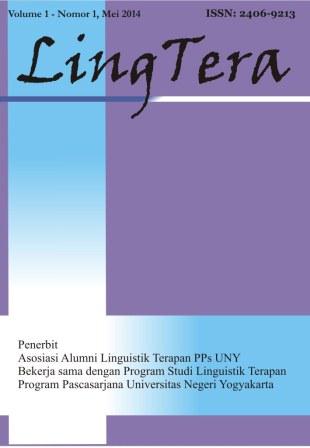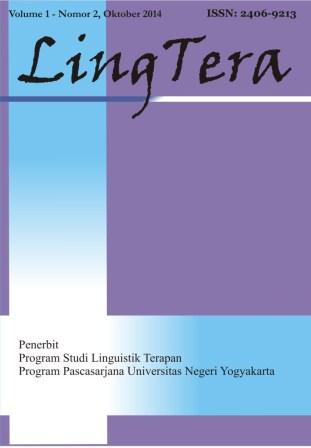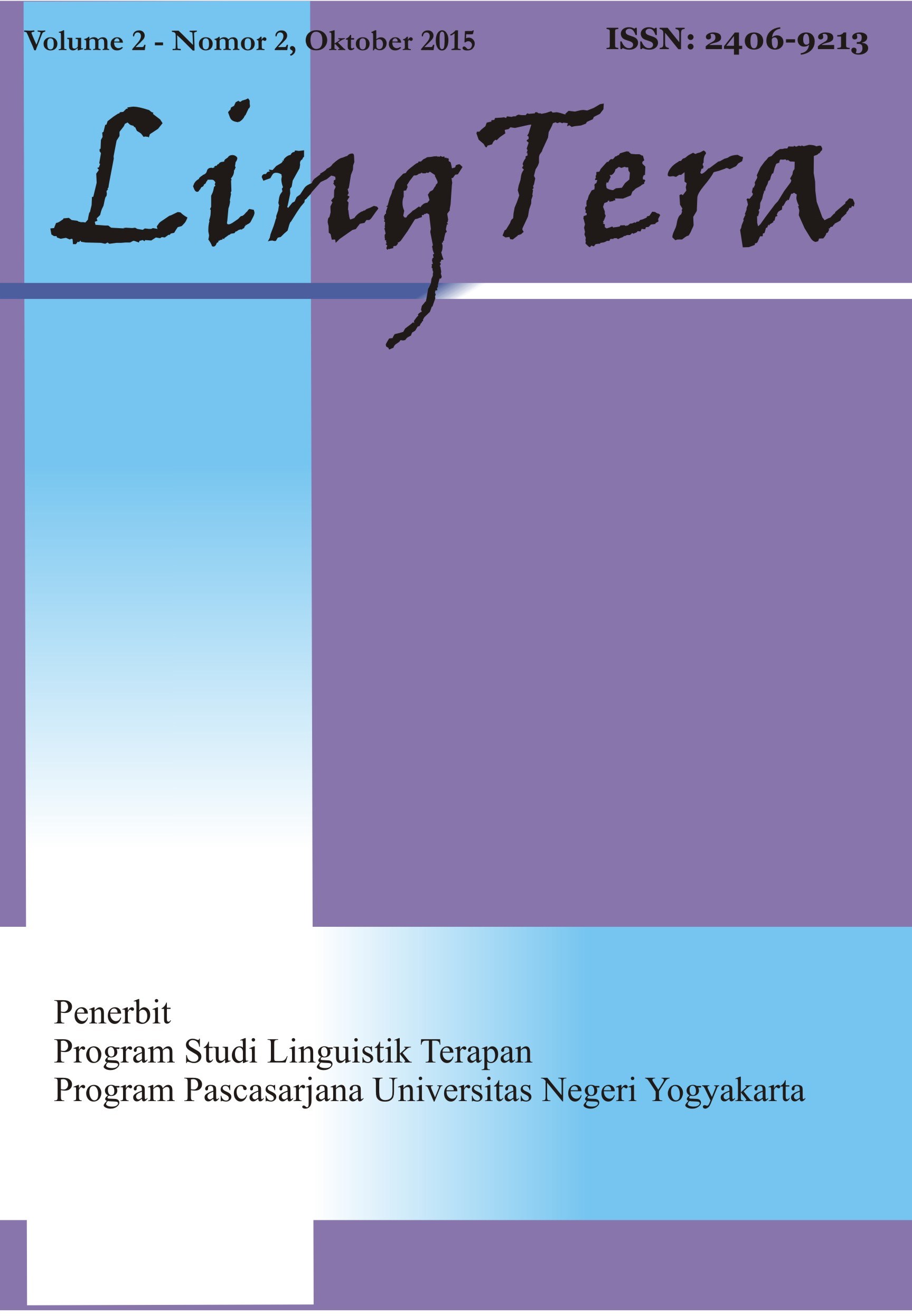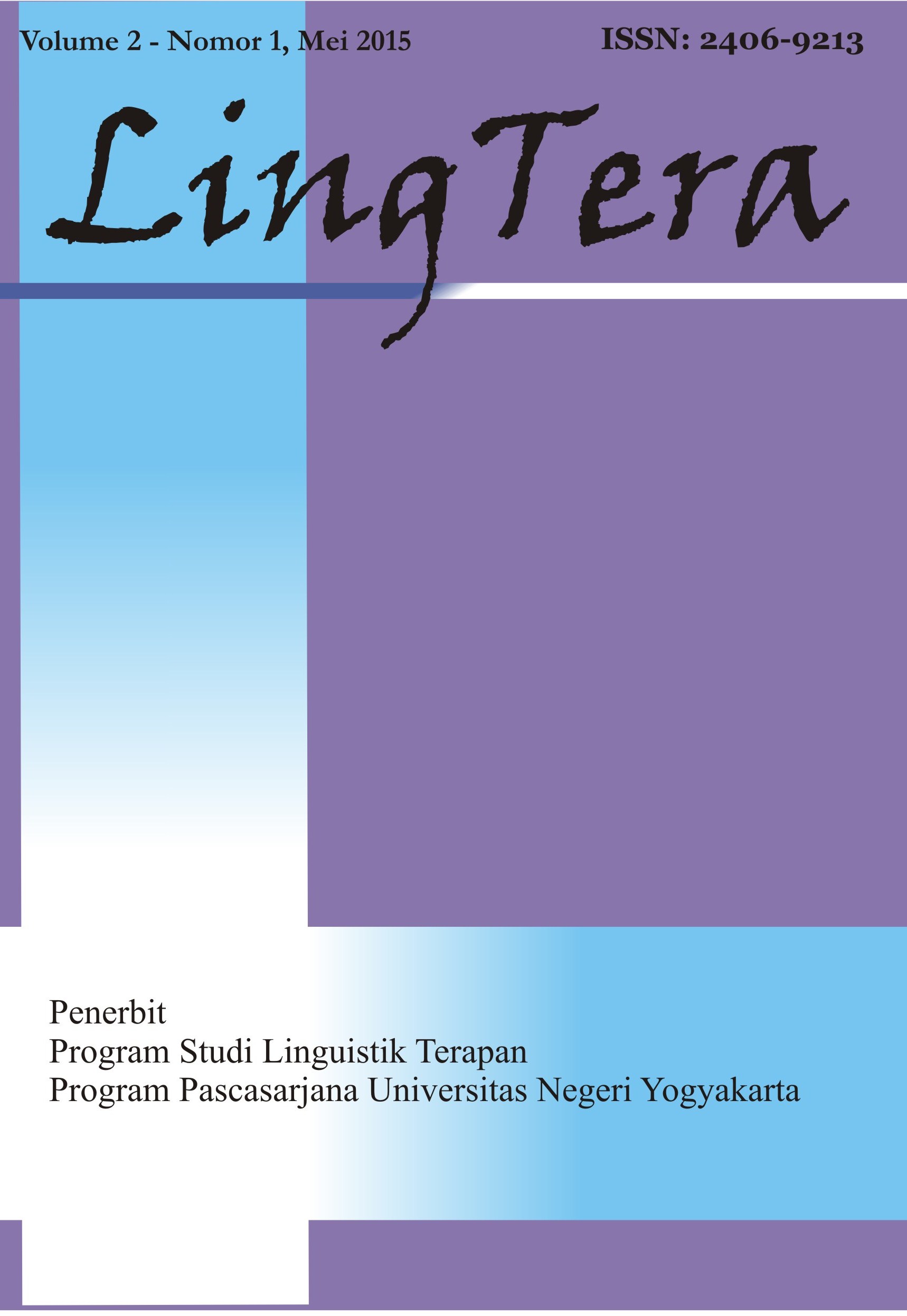
Archives - Page 2
-

October 2014
Vol. 1 No. 2LingTera Volume 1 Number 2 of October 2014 has been available to all readers. This issue is published containing ten articles as the results of scientific studies on various fields, including study on language education, literature, and also translation. Three articles in this journal are written in English, while the other seven in Indonesian language.
In this second issue, the first article is written by Pratiwi and Musfiroh, presenting the result of research and development of educative digital game as an effective learning medium of trip report writing for Junior High School students. The second article that is written by Rahadini and Suwarna presents a study on well behaved language in Javanese language learning interaction of Junior High School students. The third article that is written by Devi Rosmawati and Asruddin Barori Tou studies textual meaning broadness variety in bilingual texts: English and Indonesian languages. The fourth article is written by Dwi Astuti Indriati and Haryadi which studies poem appreciation learning with the employment of music as the learning medium in Senior High School. The fifth article written by Emi Nursanti and Asruddin Barori Tou studies thematic progression variations in translational text in English and Indonesian languages. The sixth article written by Haris Fadhillah and J. Bismoko studies the functions of idiom in building story in a novel. The seventh article written by Mahmud and Pangesti Wiedarti studies college students' perception on the effectiveness of English and Arabic languages learning. The eighth article is written by Nurmiyati and Pujiati Suyata, studying the effectiveness of the techniques of Paired Story Telling and Jigsaw in speaking course. The nineth article written by Rahmi Munfangati and Pratomo Widodo studies the performance of certified English teachers in Yogyakarta. The tenth article as the last article in this issue is written by Wirayudha Pramana Bhakti and Haryadi, studying the effectiveness of the employment of Poster and Mind Mapping media in speech skills learning of Vocational High School students. -

May 2014
Vol. 1 No. 1The term of Applied Linguistics refers a study with a perspective which links both theoretical and applied scientific fields to one inseparable unity. This perspective breaks the concept which dichotomizes theoretical and applied fields. In other words, knowledge (theoretically) without its application or implementation canot be referred as a knowledge/ science, because the value of a science/ knowledge is in its application, as expressed by some experts such as Halliday (1985, p.7) that "˜[the] value of a theory lies in the use that can be made of it, and I have always considered a theory of language to be essentially consumer-oriented'.
Linking and uniting theoretical and applied linguistics in human learning contexts have become a necessity in a linguist's pace to contribte in various contexts of national development, in which language holds a dominant and decisive role. Applied linguistics which studies phenomena and behavior of linguistic semiotics, literature and translation and everything which involves language, which occurs in various applied contexts both in educational and non-educational contexts, is expected to show its pace. In this journal, the study of applied linguistics embraces a very broad scientific fields, such as, studying language and its use in the contexts of language education, language planning, language policy, translation, lexicography, and other education in educational institutions, and also studying language and its use in various contexts of human learning which occurs in society (outside the educational institutions).










